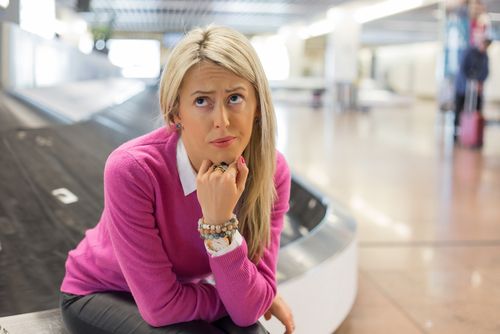 Your honeymoon is an opportunity for some good old rest and relaxation. Not only that, you’ll spend your first days together as a married couple. At the same time, traveling comes with some risks. Honeymooning couples can encounter some common problems, but you can handle them with a few useful tips.
Your honeymoon is an opportunity for some good old rest and relaxation. Not only that, you’ll spend your first days together as a married couple. At the same time, traveling comes with some risks. Honeymooning couples can encounter some common problems, but you can handle them with a few useful tips.
1. Lost Luggage
Lost luggage can be aggravating and costly. Most airlines reimburse you after declaring your baggage lost, usually five to 14 days after your flight. The U.S. Department of Transportation explains that the maximum liability on domestic flights is $3,500 and $1,780 for international flights covered by the Montreal Convention.
Writing for TripSavvy, Kathleen Crislip recommends packing as much as possible into your carry-on bags. Many major carriers let you take two bags onto the plane, but confirm this with your airline. Crislip offers excellent advice for checked baggage:
- Make a complete list of your bags’ contents.
- Label baggage both inside and out. Include your name and address on the inside lid.
- Tag your bag by wrapping brightly colored tape around a strap or handle.
- Keep your tag stubs provided by the airline’s check-in counter.
- Take a picture of your bag and store it in your cellphone.
- Remove any old tags from your bag.
2. Missing or Stolen Passports
When you can’t find your passport, panic can set in. Maybe it’s stashed deep in a pocket, inadvertently shoved into a drawer, or forgotten in the hotel safe. If you’ve checked everywhere but still don’t find it, you must act fast. Condè Nast Traveler recommends immediately contacting a passport agency. If you’re overseas, contact your nearest U.S. embassy or consulate. You should also gather several pieces of documentation:
- A color passport photo, taken within the last six months
- Proof of citizenship
- Driver’s license or state ID card
- Proof of your flight or a travel itinerary
You’ll also need a DS-64 form with a statement concerning your missing passport and a DS-11 passport application. Passport agencies usually require you to make an appointment, but they can be booked up for a few weeks. Domestic travelers may be able to replace their missing passports quickly through a third-party vendor such as RushMyPassport.com, but expedited service typically comes with hefty fees. International travelers may deal with the consulate’s or embassy’s after-hours duty officer for missing passports during weekends and holidays.
Meanwhile, the Travel Channel offers some smart advice for ensuring your passport stays safe. Keep your passport in your hands when using it and don’t put it down anywhere. Also, stash it deep within a backpack, purse, or travel bag that closes tightly. Consider locking it in a hotel safe or in a suitcase with TSA-approved locks. Finally, don’t present it to anyone unless you’re sure that you’re dealing with legitimate authorities.
3. Getting Sick
Nothing puts the damper on a long-anticipated honeymoon quite like illness. Traveler’s diarrhea is the most common, explains the Mayo Clinic, usually from contaminated food or drink. Overdoing it on the food, drink, activity, or sun exposure are also risk factors. Staying hydrated is essential, and don’t forget to pack some over-the-counter medication for diarrhea and upset stomach. If your symptoms become severe, visit a hospital immediately.
Of course, taking some precautions can prevent illness. Smarter Travel advises researching health risks in your destination, especially if it’s outside the United States. Stick to established food and drink vendors, and avoid consuming tap water, undercooked dishes, or raw food. You should also get any recommended vaccinations at least one month before your departure.
Be Prepared and Avert Disaster
No honeymoon is completely perfect, but the proverbial ounce of prevention can save you a lot of headaches when you travel. Whether with lost luggage, missing passports, or illness, taking precautions and developing an emergency plan are essential when you’re away from home.